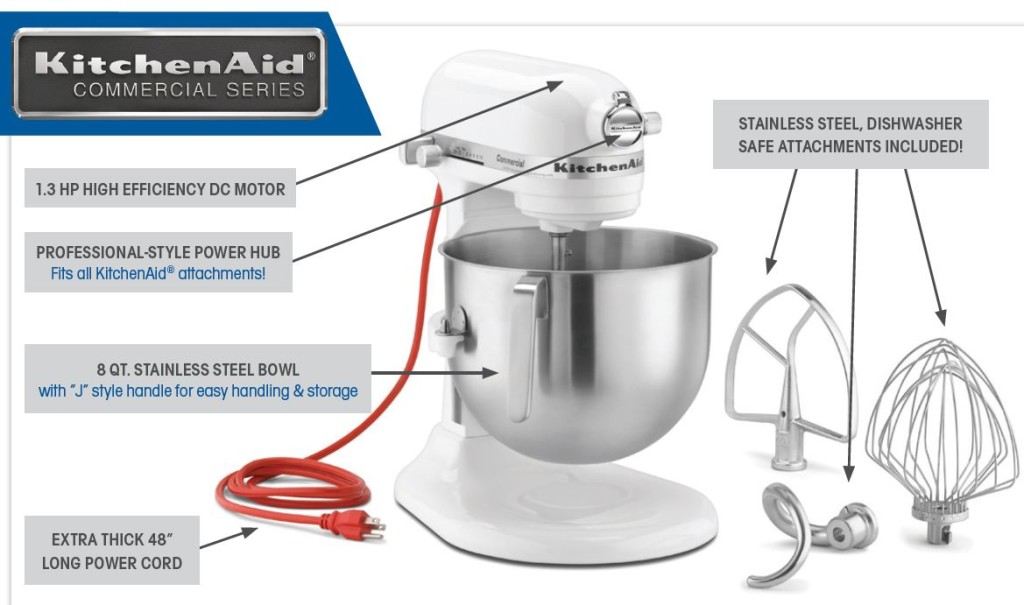Great question and one we get more often than not. The glaring fact is that there are definitely different price points, which encourages residential customers to stick with residential equipment, and tempts restaurant owners to do the same. We get it, it’s about keeping money in your pocket, but the truth is that there’s more than just price that sets residential and commercial equipment apart, and in the long run, you actually get more for your money with commercial equipment.
When looking to make an investment in a piece of food service equipment, you’ll need to compare apples to apples. Look at storage space, how it would hold up to being used in a commercial kitchen (vs. in a home: the equipment may only be used a few times a week, or month), size of product, if it complies with FDA and NSF regulations, thickness of the electrical cords, warranties, motor options, electrical options, etc. Where a regular KitchenAid may work in your home, in a restaurant you’ll likely have to step it up to a much larger mixer to withstand the wear and tear of back of house. Make sure you know all of the differences between the pieces of equipment you’re shopping for and know if it will hold up to your cooking needs. Besides, paying less in the short term doesn’t always mean greater savings in the long run – if a machine breaks down because it is overloaded, you’re looking at repairs, or worse, replacing the machine altogether. Of course, if you ever need help, just let us know, we’re happy to help.

